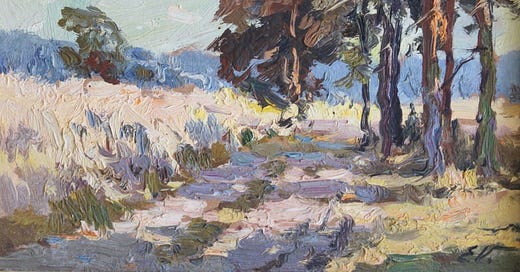Frost begins by informing us that this poem takes place during Fall, with the mention of yellow wood. A time for consideration as the year approaches its end. He decides against conformity (the safe choice) after having projected himself into the future.
Two roads diverged in a yellow wood, And sorry I could not travel both And be one traveler, long I stood And looked down one as far as I could To where it bent in the undergrowth;
Here he seems to signal to us readers, that there is nothing wrong with taking the safe path despite it being the one chosen by most people. While he chose to walk to the drums of his heart, doing it puts into question the originality of the choice.
Then took the other, as just as fair, And having perhaps the better claim, Because it was grassy and wanted wear; Though as for that the passing there Had worn them really about the same,
In the third stanza, he seems to look back and realise that both roads are unique choices in their own way. Still, he decides to persevere in his initial choice a while longer. He knows, however, that eventually it will be too late to come back to the unexplored path. There is a tinge of regret for what may have been.
And both that morning equally lay In leaves no step had trodden black. Oh, I kept the first for another day! Yet knowing how way leads on to way, I doubted if I should ever come back.
This is confirmed in the last stanza. He now expects to recollect with regret. Frost knows that he will have to maintain a pretense of satisfaction when retelling the story, though there is shame in doing that.
I shall be telling this with a sigh Somewhere ages and ages hence: Two roads diverged in a wood, and I— I took the one less traveled by, And that has made all the difference.
The grass is always greener on the other side comes to mind when reading this poem about regret. What is your read?





Share this post